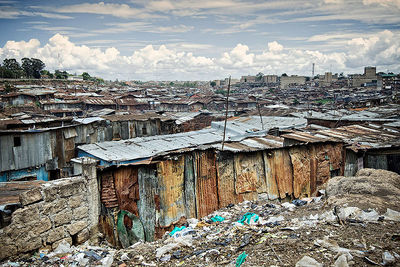|
Help Write Articles about our World
Welcome to Citizendium, a wiki for providing free knowledge where authors use their real names. We write the kinds of encyclopedia-style articles that Wikipedia and other sites can't write. We welcome anyone who wants to share their knowledge on virtually any subject. Our online community prides itself on being congenial and supportive.
The Citizendium is a small, supportive community of collaborators who work on articles which could not be developed in Wikipedia, that are different from what Wikipedia now offers, though not necessarily either better or worse. Please understand that we love Wikipedia; most of us consult it several times per day. But we also understand its limitations, and that's why we support The Citizendium also, not as a competitor but as supplement. We acknowledge and honor Wikipedia's successes in seeking to be a complete compendium of everything; it would be futile to duplicate that effort. We also believe that the philosophy of "less is more" sometimes applies, where an important aspect of a topic can be emphasized without trying to include everything known about a given topic in a single article.
The Citizendium provides a different kind of collaborative environment than Wikipedia now offers. We use real names, and we have a modest number of active authors so that it becomes possible to know each other well. We strive for objectivity and quality--and civility. We consider ourselves to be a community. To help address control issues, we're open to having multiple articles developed on a single topic (to be located via a disambiguation page). For those who want more fully lead the direction of an article, we allow "lead authors" on articles. Led articles can still be collaborations, but the declared article leaders are the ones who get to guide the direction and emphasis of the article.
We have no problem whatsoever with people using The Citizendium as a staging area for an article to be copied elsewhere later (such as to Wikipedia, where it will likely be seen by more eyes). This is legal, with the following caveats: the article remains behind on The Citizendium (may not simply be deleted), and at its new home, attribution is given to The Citizendium as per our site license. In fact, we find these cases interesting to watch over time, to see how the two parallel articles evolve in their different hosts.
See Recent Changes—an overview of articles we are writing now.
Become a member--it's free!
We are no longer using Google Docs to take applications. Please do this instead: Instructions for joining this wiki.
| Our help system and forum
|
Questions and answers to help you find the information you need
|
|
Some of our finest
Citable Articles (146)
Developed Articles (1,126)
(16,426 total articles)
|
Writing is one of the most effective ways to develop thinking.
— Syrene Forsman, Writing to Learn Means Learning to Think
—add a quotation about knowledge or writing
|
 The Mathare Valley slum near Nairobi, Kenya, in 2009. Poverty is deprivation based on lack of material resources. The concept is value-based and political. Hence its definition, causes and remedies (and the possibility of remedies) are highly contentious.[1] The word poverty may also be used figuratively to indicate a lack, instead of material goods or money, of any kind of quality, as in a poverty of imagination.
Definitions
Primary and secondary poverty
The use of the terms primary and secondary poverty dates back to Seebohm Rowntree, who conducted the second British survey to calculate the extent of poverty. This was carried out in York and was published in 1899. He defined primary poverty as having insufficient income to “obtain the minimum necessaries for the maintenance of merely physical efficiency”. In secondary poverty, the income “would be sufficient for the maintenance of merely physical efficiency were it not that some portion of it is absorbed by some other expenditure.” Even with these rigorous criteria he found that 9.9% of the population was in primary poverty and a further 17.9% in secondary.[2]
Absolute and comparative poverty
More recent definitions tend to use the terms absolute and comparative poverty. Absolute is in line with Rowntree's primary poverty, but comparative poverty is usually expressed in terms of ability to play a part in the society in which a person lives. Comparative poverty will thus vary from one country to another.[3] The difficulty of definition is illustrated by the fact that a recession can actually reduce "poverty".
Causes of poverty
The causes of poverty most often considered are:
- Character defects
- An established “culture of poverty”, with low expectations handed down from one generation to another
- Unemployment
- Irregular employment, and/or low pay
- Position in the life cycle (see below) and household size
- Disability
- Structural inequality, both within countries and between countries. (R H Tawney: “What thoughtful rich people call the problem of poverty, thoughtful poor people call with equal justice a problem of riches”)[4]
As noted above, most of these, or the extent to which they can be, or should be changed, are matters of heated controversy.
- ↑ Alcock, P. Understanding poverty. Macmillan. 1997. ch 1.
- ↑ Harris, B. The origins of the British welfare state. Palgrave Macmillan. 2004. Also, Oxford Dictionary of National Biography.
- ↑ Alcock, Pt II
- ↑ Alcock, Preface to 1st edition and pt III.
|
|
